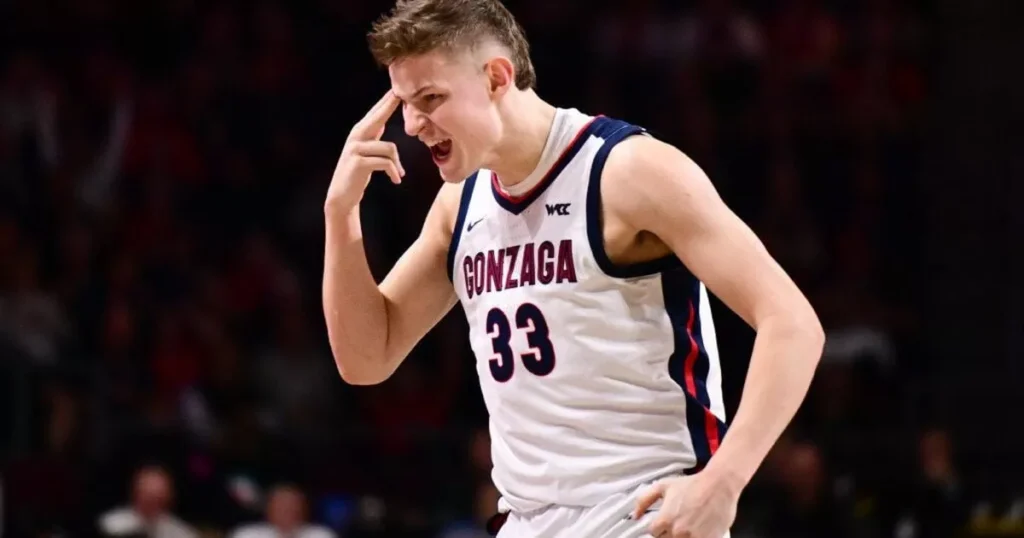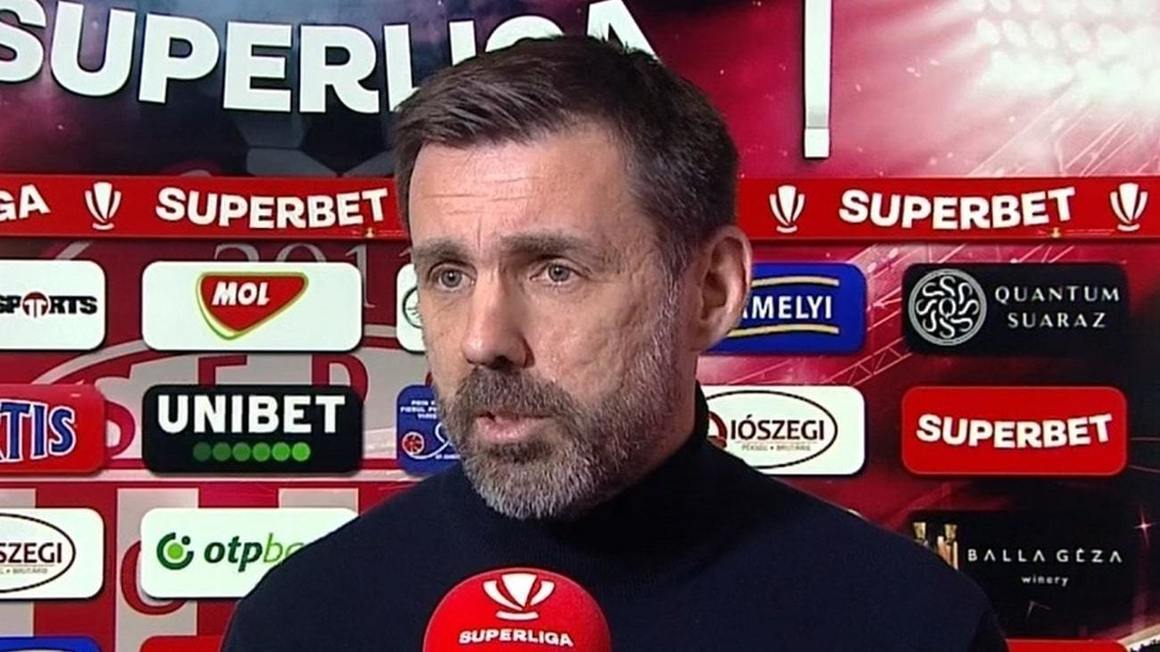
Ben Gregg of Gonzaga awarded ‘Ultimate Zag’ title following breakout season
A player who earns the title of “Ultimate Zag” impacts the game in ways that extend beyond traditional statistics.
Recent examples from Gonzaga men’s basketball include Drew Timme, known for his charisma and fierce competitiveness, and Anton Watson, recognized for his selflessness and versatility. These players exemplify how their personalities manifest in their approach to the game, highlighting a key trait shared by the most impactful players in the program: authenticity.
Ben Gregg exemplifies this ethos, transitioning from a freshman without a defined role to a vital contributor in Gonzaga’s offensive resurgence this past season. His hustle for loose balls, tenacity on the boards, and defensive versatility, coupled with his deep shooting range, ignited the Bulldogs once he became a regular starter midway through West Coast Conference play. Gregg’s selfless and competitive mindset, driven by a desire to win, fueled this energy.
Initially, embracing the role of excelling in the little things wasn’t instinctive for Gregg. However, over the past two seasons, he recognized that to earn playing time alongside other talented players, he needed to commit to making gritty contributions.
Gregg’s selflessness will define his tenure at Gonzaga and solidify his significance in the program next season. Mark Few, Gonzaga’s head coach, attests to this, labeling Gregg as “Mr. Zag” and praising his deep connection to the program. Gregg’s inclusion in the starting lineup was a strategic move to maximize his impact, a decision validated by the team’s performance.
An analysis of Gregg’s junior season at Gonzaga underscores his evolution and crucial role within the team.
POSITIVE DEVELOPMENTS
Gregg played a pivotal role in elevating Gonzaga’s offense to its peak during the 2023-24 season. Following his promotion to the starting lineup on January 18th, the Bulldogs surged, winning 16 of their last 19 games. They boasted the nation’s third-most efficient offense, with the highest effective field goal percentage, and ranked third in turnover rate, all while shooting over 40.1% on 3-point attempts. Contrastingly, in the initial 16 games of the season when Gregg served as a bench player, the offense lagged, ranking outside the top 30 in all mentioned categories.
Despite Gregg’s modest assessment of his offensive contributions after the win against Kansas, the statistics tell a different story. As a starter, he averaged 10.1 points, 6.4 rebounds, and 1.2 steals per game, shooting an impressive 56.4% from the field and 40.3% from beyond the arc on 3.5 attempts per game. His ability to stretch the floor not only created more opportunities for his teammates on the perimeter but also provided Graham Ike with increased space in the low post.
Defensively, Gregg’s relentless hustle and determination established him as one of the WCC’s most impactful players. He ranked sixth in the league for defensive rating, which estimates points conceded per 100 possessions, and held the third-best defensive box plus/minus, an estimate compared to an above-average league player. Additionally, Gregg exhibited glimpses of proficiency as an on-ball defender on the perimeter and displayed a knack for disrupting passing lanes.
AREAS FOR IMPROVEMENT
While Gregg’s impressive 3-point shooting efficiency is noteworthy, opponents are now more aware of his threat from beyond the arc. To continue evolving his game, Gregg must develop a reliable response to aggressive closeouts from defenders.
This doesn’t imply the need for an elaborate dribbling repertoire to consistently beat defenders – such an approach wouldn’t align with Gregg’s style of play. However, reflecting on Drew Timme’s progression, enhancing ballhandling and footwork enabled Timme to diversify his scoring options, facilitating dribble-drives to the basket from various positions on the court.
Should Gregg make similar strides in his dribble-drive abilities during the offseason, he will significantly augment his scoring versatility for Gonzaga, making him an even more potent offensive threat.
FOCUS FOR THE OFFSEASON
The transition from averaging 10 minutes per game off the bench for the first three seasons of his career to a significant increase to 29 minutes per game as a starter underscores the importance of stamina for a player like Gregg. Prior to this season, Gregg had only played 20 or more minutes in a game three times in his career. However, as a junior, he logged 20 or more minutes in 20 games.
This workload is expected to increase further next season, as Gregg is anticipated to maintain his role as a full-time starter and possibly assume a larger offensive responsibility. Consequently, improving his conditioning will be a primary focus for him during the offseason. While Gregg won’t shoulder all of Anton Watson’s defensive responsibilities alone, he will likely play a more significant role on defense as well.





:format(webp):quality(80)/https%3A%2F%2Fliga2.prosport.ro%2Fwp-content%2Fuploads%2F2021%2F11%2Fvalentin-ticu-mario-bratu-PETROLUL-PLOIESTI-DUNAREA-CALARASI-LIGA-2-CASA-PARIURILOR-6.11.202163-1024x724.jpg)
